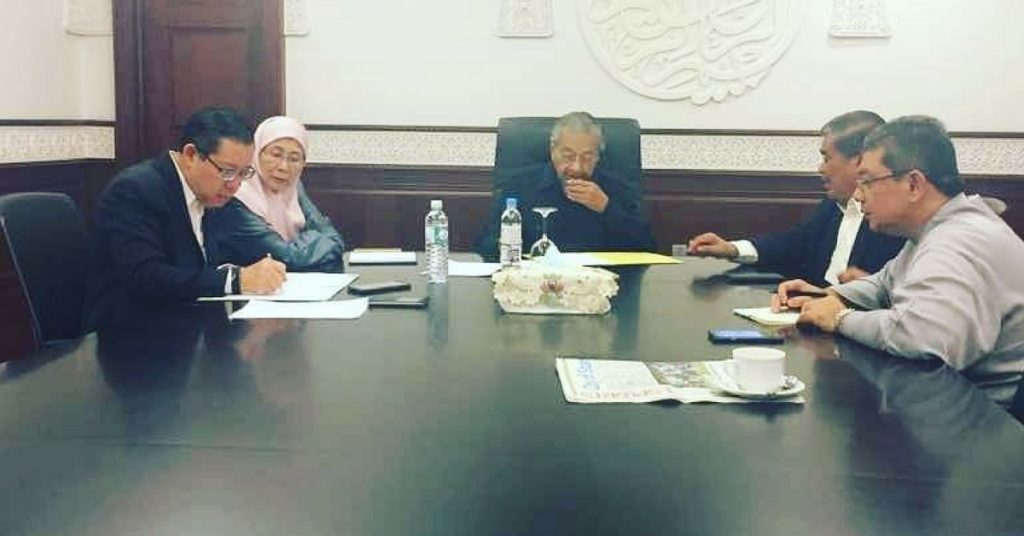- In the event of a Pakatan Harapan win, experts are divided on whether our economy will strengthen or weaken.
- What they did confirm though, is that our currency will face instability shortly after Pakatan Harapan’s victory.
- Pakatan will also have to be careful with the implementation of SST, as unrest could lead to prices rising instead of falling.
- That being said, the job market is likely to stay the same.
It was certainly “the mother of all elections”.
As of last night, it’s now official that Tun Mahathir and the Pakatan Harapan coalition has taken over our government. In a change that a lot of us still have difficulties wrapping our head around, Barisan Nasional is now the opposition.
With everything sealed in black and white and a press conference, some of us might wonder—how will this change impact our economy?
1. Our currency will be unstable for a while.
In days leading up to the election, rumours were rife that if Pakatan Harapan wins the elections then the ringgit will fall, due to knee-jerk reactions to such an unprecedented change.
As we wake up to start a new day today, that has been confirmed to be true.

Independent economist P K Basu describes this as “the silliness of financial markets”.
“They hate uncertainty, change. So the market and the ringgit are likely to sell off quite precipitously as they digest the new uncertainty caused by the first change of governing party in 61 years.”
That being said, he is optimistic about Malaysia’s economy in the longer run.
“Malaysia will benefit from a renewed social contract among the races that allows heightened capital inflows from long-alienated business groups (many of them Malaysian-Chinese) who were close to Anwar (Ibrahim) and Mahathir (Mohamad).”
Aberdeen Standard Investments Malaysia chief executive Gerald Ambrose suggests that foreign investors might change their minds about the election outcome if they see it as “a sign of rising political maturity and respect for democracy”.
He predicts that this could raise Malaysia’s appeal and economic prospects.
For now though, uncertainties have led experts into tweaking their year-end ringgit predictions to 4.00–4.05. It was 3.80 previously.
According to The Edge, a market observer opines that “If BN were to lose control of the government, the market will tank as investors would price in the worst-case scenario. The risks from the 1MDB (1Malaysia Development Bhd) investigation would resurface as the market would need to look at the probability of a full-blown probe into the issues, as promised by Dr Mahathir in PH’s election manifesto.”
Mahathir has doubled down on his intentions to probe into the 1MDB scandal, and in fact is already calling the Attorney General Mohamed Apandi Ali into question.
Apandi cleared Najib of wrongdoing after RM2.6 billion was linked to the former premier’s bank accounts.
Personally, I don’t think that unveiling anything related to 1MDB would lead to such a dramatic fall. Since Najib is no longer Prime Minister, the market might see Mahathir’s crackdown on 1MDB as a more positive move towards curbing corruption in Malaysia and introducing more stability in the long-run.
For what it’s worth, Pakatan Harapan has stated their intention to bring “economic experts” to help manage the economy, especially after promising the abolishment of GST, tolls, and reintroducing fuel subsidies.
2. A transition to SST might cause an influx of price hikes.
This is something of a personal opinion, but a few businesses could take advantage of market unrest and imbalances to increase prices and also incrase revenue.
When our currency dropped, businesses responded in suit and increased prices. However, when our currency strengthened, prices did not go back down.
The reason I’m bringing this up is because the change of our system from the GST to SST might cause market unrest, especially since Pakatan plans to do this within a tight deadline of 100 days.
When GST was implemented, detractors were angry that “poor implementation” led to prices escalating beyond just the 6% GST rate. Similarly, if SST is not applied with the right business eforcement, we might be looking at further increase in prices, rather than a 6% decrease that everyone is hoping for.
I recognise that it will not be a one-sum change, and that Pakatan could be looking at reforming more than just those two elements to help keep our economy stable—despite losses in federal revenue.
As the chairman of CIMB Group Nazir Razak pointed out, withdrawing GST should be part of an overall equation to be introduced alongside reductions in the Government’s development or operating expenditure.
But for the short-term, it is likely that the change in systems would increase prices for a while—whether prices stabilises or fall afterwards will depend on implementation.
If you want to find out more about SST and how it differs from GST, you can find out more here.
3. The job market will likely not change.
Prior to the elections, certain Malaysians were worried that Pakatan would be downsizing the civil servant force, which could lead to a situation similar to Petronas’ 2016 retrenchment exercise.
Previously, Petronas’ move led to a more saturated job market, with too many applicants for too few jobs.
Datuk Saifuddin Abdullah said that instead of downsizing civil servants, the coalition will instead look to encourage civil servants to drive transformations in their sectors, and motivating them to be experts in their fields.
“We are preparing our manifesto. I can say that downsizing is not in our draft and will not be in the final version,” said Saifuddin.
###
In the end, even the most expert of predictions only remains as predictions, as Malaysia embarks into uncharted territory. With Mahathir helming the newly minted government, we remain hopeful that his experience will help tide Malaysia through these uncertainties.
- Read about how Pakatan Harapan’s manifesto might impact entrepreneurs here.
Also Read:M’sian CEOs Reveal 2 Rare Qualities They’d Hire On The Spot & 1 They’d Completely Avoid













